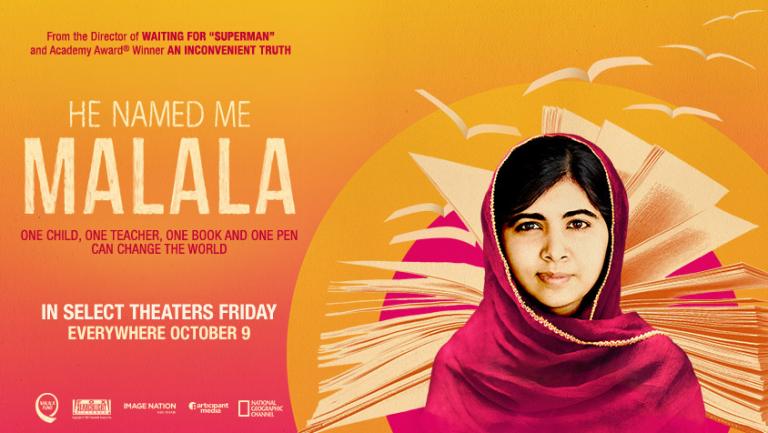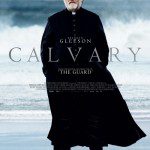I’m not going to mince words about this.
Heaven is For Real and God’s Not Dead are not Christian movies.
They are not even religious movies. They are schmaltzy, vacuous, “inspirational” movies.
If a film leaves viewers with a fist full of answers rather than questions, with declarative reassurances that heaven is real and God is alive, then it’s not really a movie about faith and it’s certainly not a Christian movie.
Those films are little more than mindless memes. They are scary chain letters that one relative always sends about Christianity being under attack in America.
But, of course, we’ve all seen what happens when a film about a religious subject attempts to wrestle with difficult topics. Take Noah, a film that, for all its faults, actually took a creative approach to the flood story and wrestled with some difficult issues about the nature of God and humankind. But, it got blasted by evangelicals with such vitriol that it shocked one of its writers!
Now, we’ve finally got a film though that does attempt to wrestle with faith. Now, we’ve finally got a film that asks questions about faith rather than answer them. Finally, we’ve got an honest film about Christianity, displaying on screen both its beauty and grace as well as its ugly warts and sins.
It’s the kind of film that sticks with you. For weeks, if not months.
It’s been almost two months since I watched John Michael McDonagh’s Calvary.
And I still can’t stop thinking about it.
It’s not just a movie you can sink your teeth into. It’s a film that sinks into your bones.
And that is the kind of movie we need to be showing at church, not the emotional, saccharine drivel that normally passes for films about Christianity.
Calvary wrestles. It questions. It struggles. It lifts audiences up, and it lays them low. It is the best film about the current state of church and religion in the modern world, engaging hard issues and difficult questions. If it makes us uncomfortable — and it will — it’s because it strikes close to the bone. If it makes us hope — and it will — it’s because it offers grace devoid of sanctimony and the white American spirituality of God is Not Dead or Heaven is For Real.
Calvary opens with a shot to let audiences know that even though we are in a small fictional town in Ireland , we are very much in the real world of today. Father James Lavelle, masterfully portrayed by Brendan Gleeson, is taking the confession of one of his parishioners. This disembodied voice explains to the priest that he was abused as a boy by another Catholic priest. In retribution for the terrible sins done against him, the confessing man vows to kill the Fr. James in seven days.
The rest of the film follows Fr. James’ week and his interactions with members of his parish. Fr. James, it seems, knows who threatened his life, but the audience doesn’t. It’s a creative riff off a who-done-it plot line that keeps audiences guessing and engaged.
But the intellectual center of the movie has less to do with the looming threat of murder, but with Fr. James’ day-to-day interactions in a small town where religion — once a glue that held the community together — has lost its hold and its importance. That kind of fracture and loss of meaning is exactly what is facing many Christians who feel betrayed by churches or let down and unimpressed by the answers they give to their questions. In sociological terms, this film is very much about anomie.
These townspeople express deep doubts and suspicions about the church and have no issue confronting its many moral failings. Sure, the townspeople are slightly hyperbolic in their vices, but the message they convey about the loss of meaning are harrowingly accurate.
I wish every single person of faith would watch these scenes in particular, because these questions are our questions, and it’s rare to see them so starkly on film. This, of course, was an intentional move on writer/director McDonagh’s part, too.
“I just felt if we are going to do an original movie and a follow up to The Guard that people won’t be expecting, then let’s make a movie like this that hasn’t come out in awhile,” McDonagh told me recently. “Something that does deal with all this philosophical and spiritual issues that we deal with every day of our lives but it’s never shown in a movie anymore.”
If these questions are the intellectual meat of the film, Gleeson’s Fr. James is its fiercely beating heart. Brilliant does not begin to describe it. It’s damn near flawless.
As my friend and fellow Patheos writer J. Ryan Parker put it,
In Calvary, McDonagh has give us one of the most honest portrayals of a Catholic priest (or any minister for that matter) in the history of the genre. Father James is compassionate, thoughtful, honest, and even broken himself. He exposes the villager’s own lies and failings for what they are, but he also confesses his own ignorance or confusion when they confront him with deep theological or philosophical questions.
It’s no surprise his portrayal was so compelling. Gleeson seems to just get the challenges of ministry and pastoral care. (Get thee to the movies, CPE folks!)
“For me, the absorption of other people’s pain, I think, was far more taxing, even if it’s done by proxy. I’m an actor. I’m not actually Fr. James, so you kind of think there is a kind of protection there,” Gleeson told me recently.“But even at that distance … you cannot do it without breaking at some point. You cannot absorb other people’s pain and expect that you have a bottomless well of optimism and of being able to cope with it. I knew that was true but to feel it in the making of a film in this way was an eye-opener.
This is a dark, dark comedy. I found myself laughing and cringing, angered and saddened, hopeful and despairing. But never, ever lost. Calvary is an incredibly profound and hopeful portrait of a priest and the crisis facing the modern church.
It’s a film that is mean to be discussed and wrestled with.
And that, to my mind, makes it truly a religious movie, or at least, a movie for the religious. You won’t find the vacuous escapism into the white-washed world of God Is Not Dead. You won’t find the naivety of afterlife experiences of a little boy of Heaven is For Real. You won’t find simple reassurance that everything is going to be okay.
Instead, you’ll find a priest who ventures out of the sanctuary and into the real world. You’ll find questions that resist easy answers. You’ll find a dark world with sparks of hope and laughter. And you’ll find a movie that sticks with you for days and weeks after the final credits roll.












